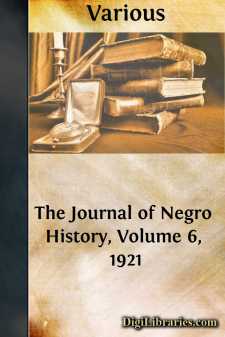Categories
- Antiques & Collectibles 13
- Architecture 36
- Art 48
- Bibles 22
- Biography & Autobiography 813
- Body, Mind & Spirit 142
- Business & Economics 28
- Children's Books 16
- Children's Fiction 13
- Computers 4
- Cooking 94
- Crafts & Hobbies 4
- Drama 346
- Education 46
- Family & Relationships 57
- Fiction 11829
- Games 19
- Gardening 17
- Health & Fitness 34
- History 1377
- House & Home 1
- Humor 147
- Juvenile Fiction 1873
- Juvenile Nonfiction 202
- Language Arts & Disciplines 88
- Law 16
- Literary Collections 686
- Literary Criticism 179
- Mathematics 13
- Medical 41
- Music 40
- Nature 179
- Non-Classifiable 1768
- Performing Arts 7
- Periodicals 1453
- Philosophy 64
- Photography 2
- Poetry 896
- Political Science 203
- Psychology 42
- Reference 154
- Religion 513
- Science 126
- Self-Help 84
- Social Science 81
- Sports & Recreation 34
- Study Aids 3
- Technology & Engineering 59
- Transportation 23
- Travel 463
- True Crime 29
Sort by:
by:
Alec C. Ball
In narrating these few episodes in the undulatory, not to say switchback, career of my friend Aristide Pujol, I can pretend to no chronological sequence. Some occurred before he (almost literally) crossed my path for the first time, some afterwards. They have been related to me haphazard at odd times, together with a hundred other incidents, just as a chance tag of association recalled them to his...
more...
ACT I A drawing-room in the Empire style in Count Kellinghausen's house. In front, on the left, a fireplace; to the left, in the background, a door to the inner apartments; to the right, back, a door into the front passage; in the foreground, on the right, a window. In the centre of back wall a wide opening between two columns, partly closed by an old Gobelins tapestry. On the right a sofa, table...
more...
by:
John Franklin
INTRODUCTION. In days of hurried action I have been astonished at the depth of interest which a re-perusal of this wonderful old narrative has held for me. Wonderful it is in its simplicity and its revelation of the simplicity of character and faith of the man who wrote it. It is old only by comparison—scarcely ninety years have elapsed since the adventures it described were enacted—yet such a...
more...
by:
William Clark
The Court convened agreeable to orders on the 17th of May 1804 Sgt. John Ordway P. members Joseph Whitehouse Rueben Fields Potts Richard Windsor after being duly Sworn the Court proceded to the trial of William Warner & Hugh Hall on the following Charges Viz: for being absent without leave last night contrary to orders, to this Charge the Prisoners plead Guilty. The Court one of oppinion that the...
more...
by:
Jonathan Swift
PREFACE The history of the publication of the Journal to Stella is somewhat curious. On Swift's death twenty-five of the letters, forming the closing portion of the series, fell into the hands of Dr. Lyon, a clergyman who had been in charge of Swift for some years. The letters passed to a man named Wilkes, who sold them for publication. They accordingly appeared in 1766 in the tenth volume of Dr....
more...
FOREWORD The following pages form an abridged translation of a book published in 1916 by Freiherrn von Forstner, commander of the first German U-boat. It was written with the somewhat careless haste of a man who took advantage of disconnected moments of leisure, and these moments were evidently subject to abrupt and prolonged interruptions. Many repetitions and trivial incidents have been omitted in...
more...
by:
Walter Scott
NOVEMBER. [Edinburgh,] November 20, 1825.—I have all my life regretted that I did not keep a regular Journal. I have myself lost recollection of much that was interesting, and I have deprived my family and the public of some curious information, by not carrying this resolution into effect. I have bethought me, on seeing lately some volumes of Byron's notes, that he probably had hit upon the...
more...
by:
Various
SLAVE SOCIETY ON THE SOUTHERN PLANTATION In the year 1619, memorable in the history of the United States, a Dutch trading vessel carried to the colonists of Virginia twenty Negroes from the West Indies and sold them as slaves, thus laying the foundation of slave society in the American colonies. In the seventeenth century slavery made but little progress in these parts of America, and during that whole...
more...
by:
Various
The Historic Background The citizenship of the Negro in this country is a fiction. The Constitution of the United States guarantees to him every right vouchsafed to any individual by the most liberal democracy on the face of the earth, but despite the unusual powers of the Federal Government this agent of the body politic has studiously evaded the duty of safeguarding the rights of the Negro. The...
more...
by:
Various
THE NEGRO IN EDUCATION In the early history of America there were three types of settlements—the French, Spanish, and English. In the French Provinces the teachings of the "Code Noir" made it incumbent upon the masters to teach the slaves, at least to read, in order, of course, that they might read the Bible; and in the Spanish districts the Latin custom of miscegenation prevented the rise of...
more...











